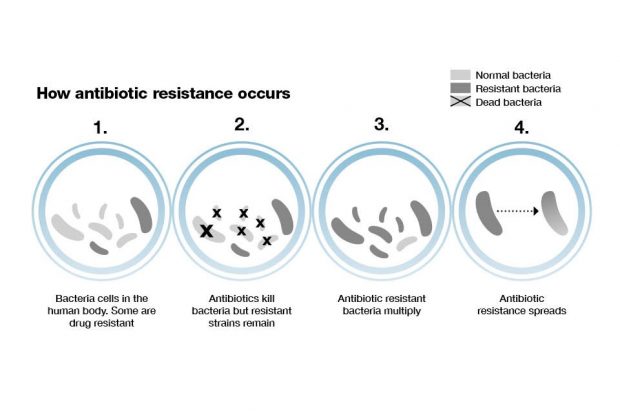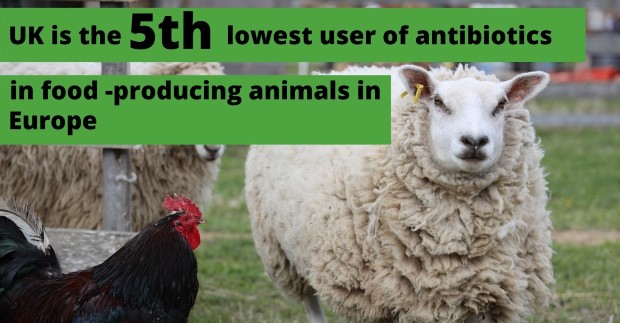
As Chief Vet for the UK, Antimicrobial Resistance (AMR) in animals is of great concern to me, both within our borders and internationally. As I mentioned in my recent blog on global One Health day this ‘slow pandemic’ presents a considerable risk to the health of people and animals in the UK and throughout the world. I am grateful then, for the opportunity AMR week gives us to consolidate our achievements in this space whilst we look towards the important work still to be done.
We’ve all seen from the COVID-19 pandemic just how difficult it is to manage diseases without an effective vaccine or treatment. Antimicrobial resistance presents exactly this threat but across a range of existing pathogens. The good news is that we can do something about it. The problem occurs when antimicrobials are used too much, or without proper care, and these illnesses (both in animals and humans) develop resistance. This means our existing medicines no longer work to prevent the illness from spreading and affecting our health and food supplies.

Major international partners, including the Tripartite (WHO, FAO and OIE), are driving improvements in the understanding and management of AMR around the world. Furthermore, I note and welcome the appointment of Professor Dame Sally Davies, our former Chief Medical Officer for England, onto the Global Leaders AMR Group.
Here in the UK, in 2019, the government published a 20 year vision and 5 year national action plan for how the UK will contribute to containing and controlling AMR by 2040.
This work should not be lost amongst other priorities. Actions such as the reduced use of antibiotics in humans and animals, as well as joint reporting of current use and resistance by the Veterinary Medicines Directorate are making a difference, and as the Veterinary Antimicrobial Resistance and Sales Surveillance 2019 (VARSS) report is published today I would like to express my thanks to all those working to protect our health and the safety of our food.
There has been considerable advancements over the last few years as the Tripartite have developed their AMR Workplan, the UK FAO Reference centre for AMR has been established, and more and more people recognise the very serious risk AMR poses to global health and food security.
I am particularly proud of the UK Livestock Health and Welfare councils for bridging gaps and bringing together stakeholders from our farmers, to species experts and livestock sector leaders. That is not to say the work is done.

There is great need for further improvements in the realm of AMR and One Health. From a veterinary perspective, in sectors around the world as well as within the UK, there remains work to do on understanding around the appropriate use of antimicrobials in livestock and companion animals. I would encourage global leaders to continue emphasising the severity of this issue and need for timely action and am heartened by recent international fora.
If we have learnt anything from the last 9 months it is how important international health security is to us all.
Clearly this is an issue that requires an ongoing One Health approach. Challenges in humans, animals and plants are closely interlinked through contact and consumption. As we well know, diseases often transfer from animals to humans and the importance of all chains of interaction cannot be overstated. We must continue to work together across all disciplines to share information and experiences essential to effective AMR management.
I am particularly excited about the international work and announcement of the United Nations Environment Programme’s (UNEP) inclusion into ongoing activities taking place within the Tripartite, as the environment plays such a crucial role in One Health and AMR protection.
We must remain vigilant to the threat of AMR and the emergence of resistant pathogens, to ensure these do not spread, and we do not find ourselves in a situation where we are powerless to protect our own health and that of the animals and plants we rely on.
